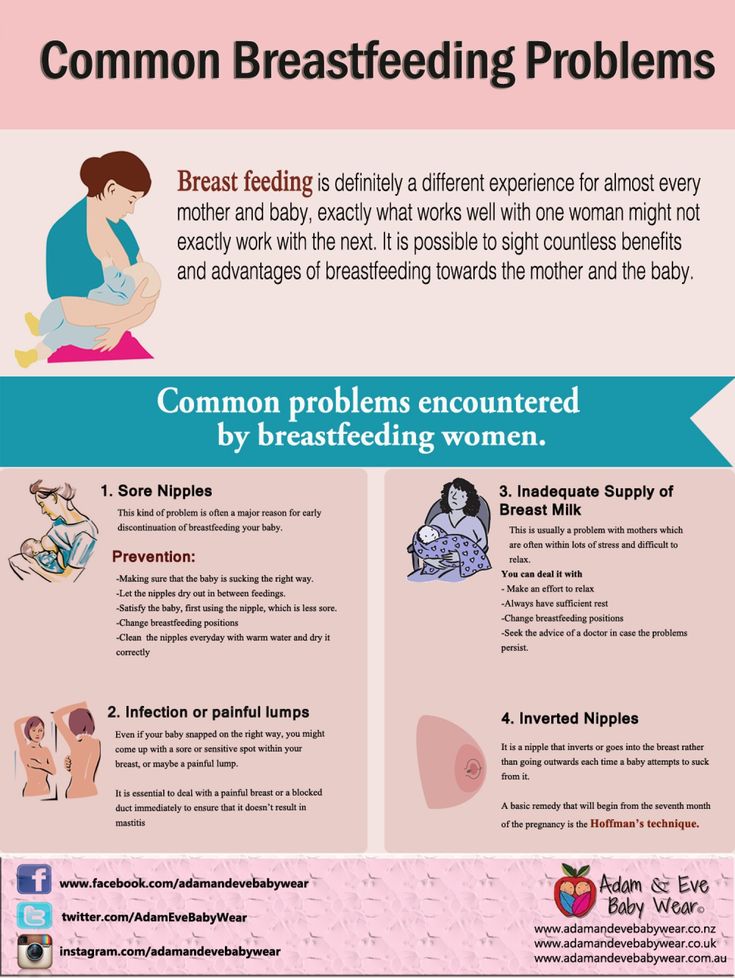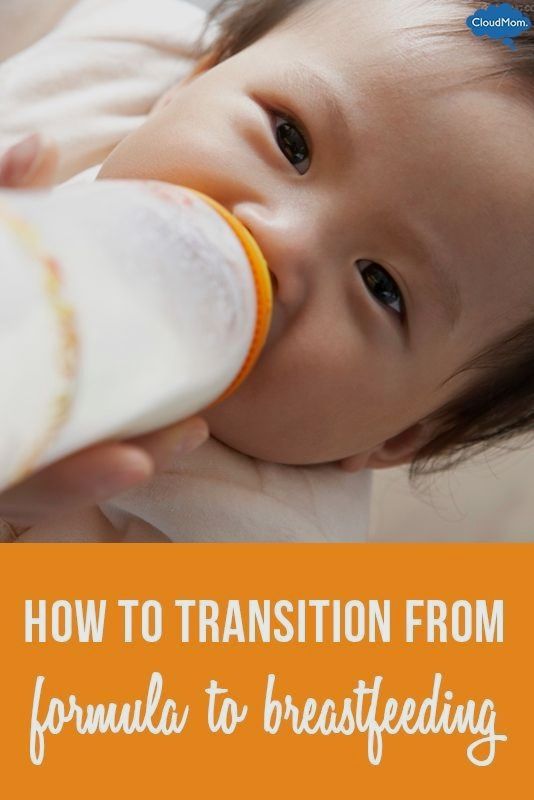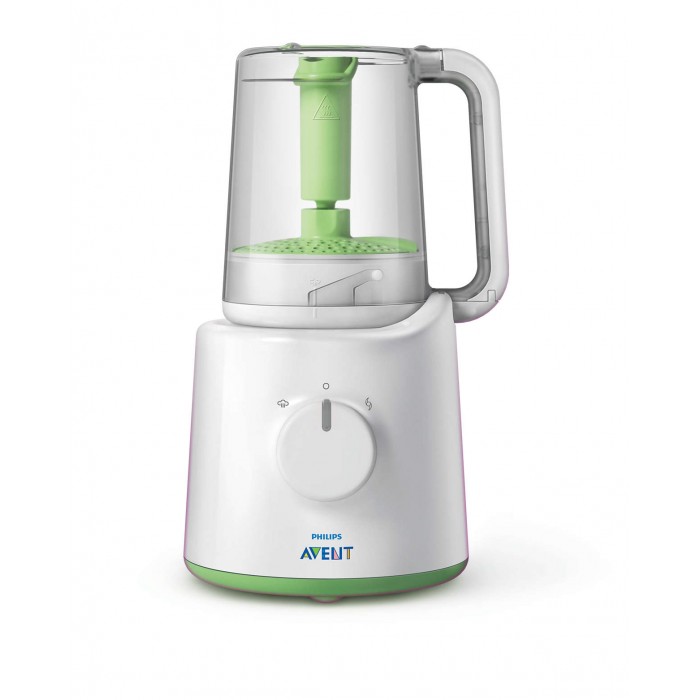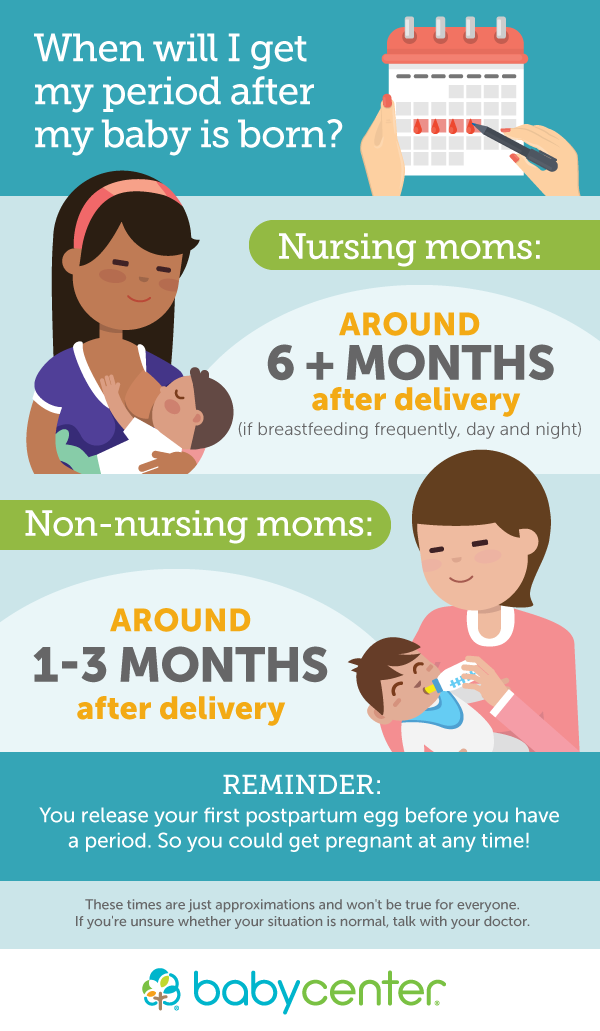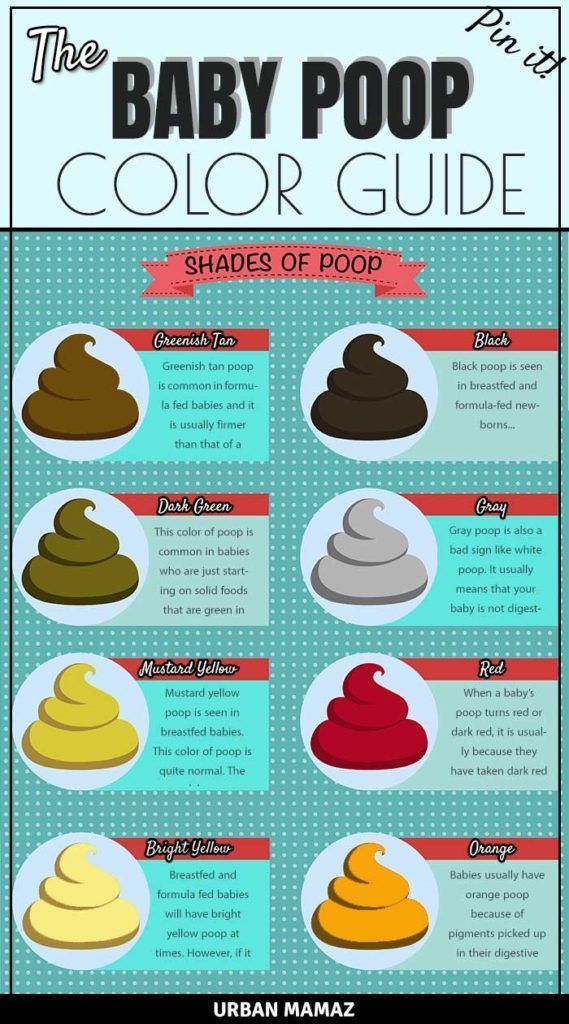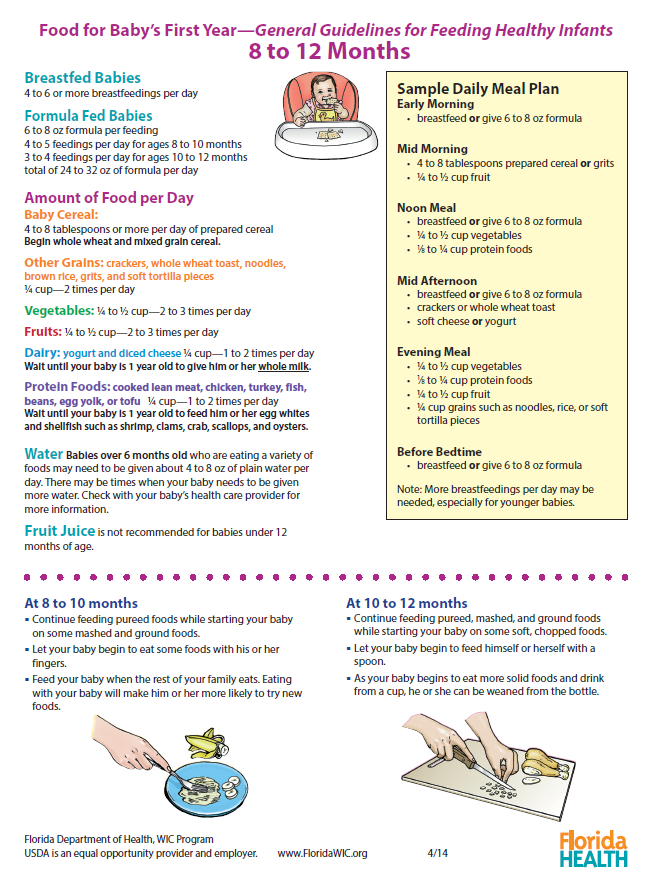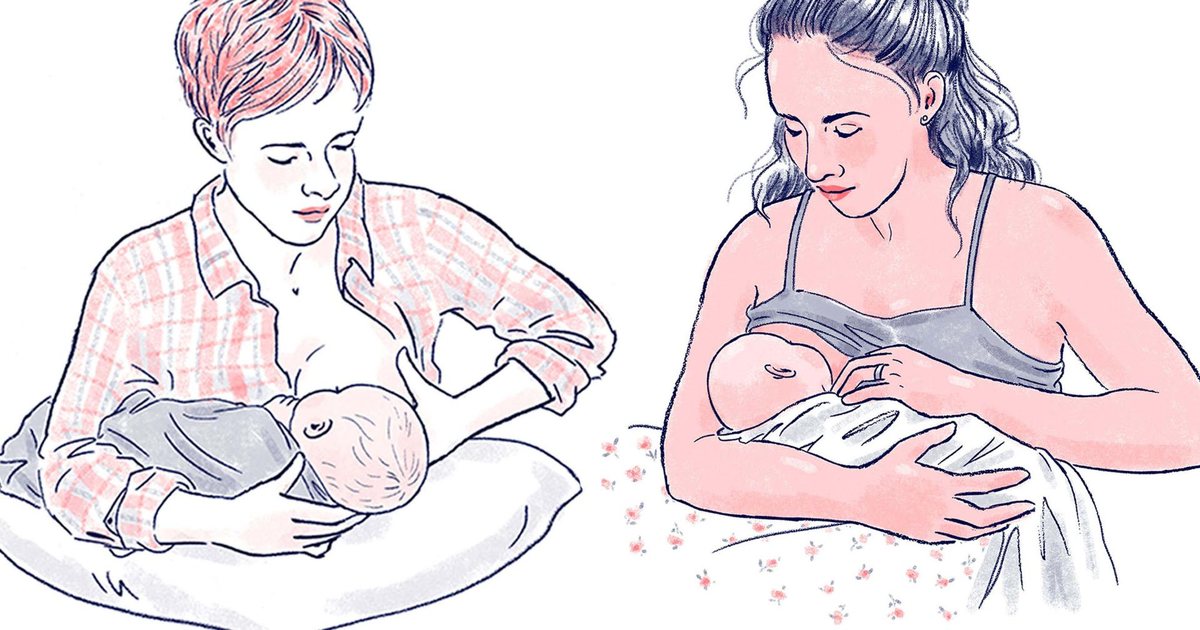How long should a breastfed baby feed
Breastfeeding FAQs: How Much and How Often (for Parents)
Breastfeeding is a natural thing to do, but it still comes with its fair share of questions. Here's what you need to know about how often and how long to breastfeed your baby.
How Often Should I Breastfeed?
Newborn babies should breastfeed 8–12 times per day for about the first month. Breast milk is easily digested, so newborns are hungry often. Frequent feedings helps stimulate your milk production during the first few weeks.
By the time your baby is 1–2 months old, he or she probably will nurse 7–9 times a day.
In the first few weeks of life, breastfeeding should be "on demand" (when your baby is hungry), which is about every 1-1/2 to 3 hours. As newborns get older, they'll nurse less often, and may have a more predictable schedule. Some might feed every 90 minutes, whereas others might go 2–3 hours between feedings.
Newborns should not go more than about 4 hours without feeding, even overnight.
How Do I Count the Time Between Feedings?
Count the length of time between feedings from the time your baby begins to nurse (rather than at the end) to when your little one starts nursing again. In other words, when your doctor asks how often your baby is feeding, you can say "about every 2 hours" if your first feeding started at 6 a.m., the next feeding was around 8 a.m., then 10 a.m., and so on.
Especially at first, you might feel like you're nursing around the clock, which is normal. Soon enough, your baby will go longer between feedings.
How Long Does Nursing Take?
Newborns may nurse for up to 20 minutes or longer on one or both breasts. As babies get older and more skilled at breastfeeding, they may take about 5–10 minutes on each side.
How long it takes to breastfeed depends on you, your baby, and other things, such as whether:
- your milk supply has come in (this usually happens 2–5 days after birth)
- your let-down reflex (which causes milk to flow from the nipple) happens right away or after a few minutes into a feeding
- your milk flow is slow or fast
- the baby has a good latch, taking in as much as possible of your areola (the dark circle of skin around your nipple)
- your baby begins gulping right away or takes it slow
- your baby is sleepy or distracted
Call your doctor if you're worried that your baby's feedings seem too short or too long.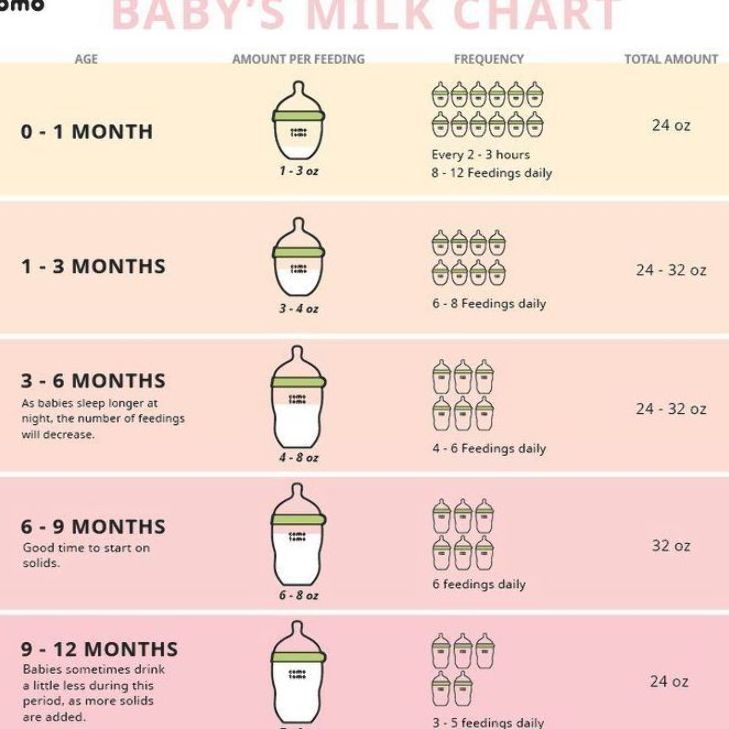
When Should I Alternate Breasts?
Alternate breasts and try to give each one the same amount of nursing time throughout the day. This helps to keep up your milk supply in both breasts and prevents painful engorgement (when your breasts overfill with milk).
You may switch breasts in the middle of each feeding and then alternate which breast you offer first for each feeding. Can't remember where your baby last nursed? It can help to attach a reminder — like a safety pin or small ribbon — to your bra strap so you'll know which breast your baby last nursed on. Then, start with that breast at the next feeding. Or, keep a notebook handy or use a breastfeeding app to keep track of how your baby feeds.
Your baby may like switching breasts at each feeding or prefer to nurse just on one side. If so, then offer the other breast at the next feeding. Do whatever works best and is the most comfortable for you and your baby.
How Often Should I Burp My Baby During Feedings?
After your baby finishes on one side, try burping before switching breasts. Sometimes, the movement alone can be enough to cause a baby to burp.
Sometimes, the movement alone can be enough to cause a baby to burp.
Some infants need more burping, others less, and it can vary from feeding to feeding.
If your baby spits up a lot, try burping more often. While it's normal for infants to "spit up" a small amount after eating or during burping, a baby should not vomit after feeding. If your baby throws up all or most of a feeding, there could be a problem that needs medical care. If you're worried that your baby is spitting up too much, call your doctor.
Why Is My Baby Hungrier Than Usual?
When babies go through a period of rapid growth (called a growth spurt), they want to eat more than usual. These can happen at any time. But in the early months, growth spurts often happen when a baby is:
- 7–14 days old
- 2 months old
- 4 months old
- 6 months old
During these times and whenever your baby seems extra hungry, follow your little one's hunger cues. You may need to breastfeed more often for a while.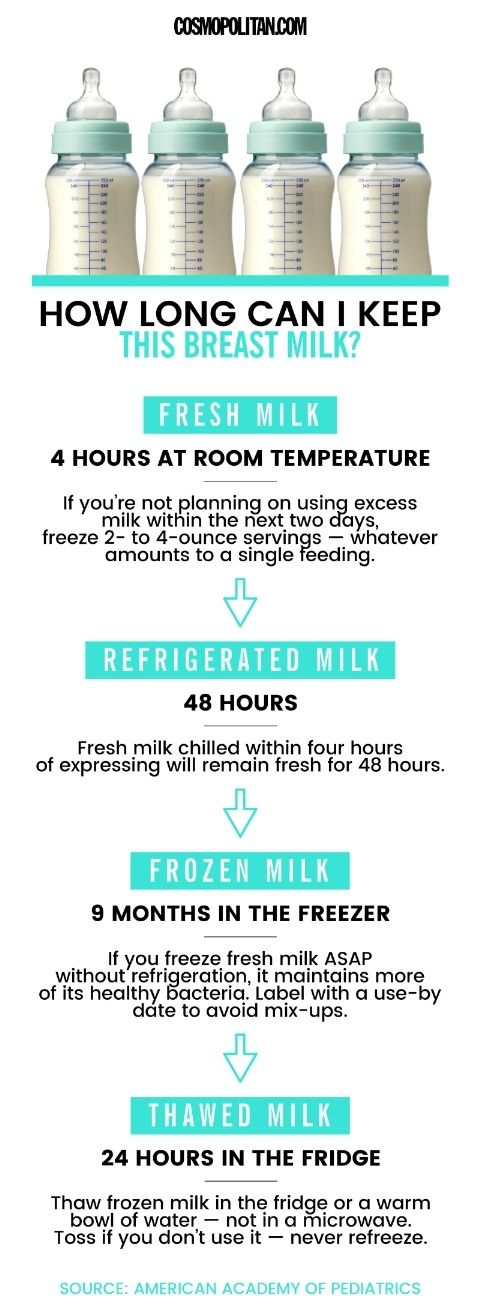
How Long Should I Breastfeed My Baby?
That's a personal choice. Experts recommend that babies be breastfed exclusively (without formula, water, juice, non–breast milk, or food) for the first 6 months. Then, breastfeeding can continue until 12 months (and beyond) if it's working for you and your baby.
Breastfeeding has many benefits for mom and baby both. Studies show that breastfeeding can lessen a baby's chances of diarrhea, ear infections, and bacterial meningitis, or make symptoms less severe. Breastfeeding also may protect children from sudden infant death syndrome (SIDS), diabetes, obesity, and asthma.
For moms, breastfeeding burns calories and helps shrink the uterus. In fact, breastfeeding moms might return to their pre–pregnancy shape and weight quicker. Breastfeeding also helps lower a woman's risk of diseases like:
- breast cancer
- high blood pressure
- diabetes
- heart disease
It also might help protect moms from uterine cancer and ovarian cancer.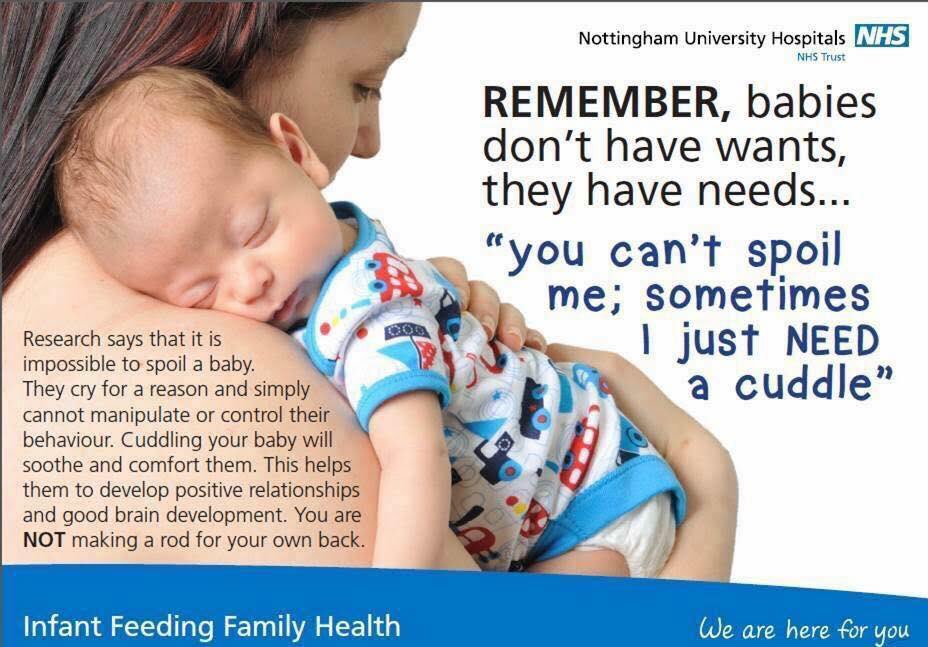
How Long Should You Breastfeed?
Nationwide Children’s Hospital
Breastfeeding can be a positive experience for both mom and baby. You’ll feel a special closeness and bond with your baby. You’ll give your baby ideal nutrition. You and your baby will both reap health benefits. Plus, breastfeeding doesn’t cost any money.
The World Health Organization (WHO) recommends breastfeeding up to 2 years or more. The American Academy of Pediatrics recommends that moms feed their babies only breastmilk for the first six months. Then they say to keep breastfeeding for at least one year. After that, it depends on how long the mom and child want to keep it up.
Keep in mind that breastfeeding even for a few weeks has benefits. Your friends and family may have strong beliefs about how long to breastfeed. But in the end, it’s up to you. Only you and your child know what’s best.
Making the decision
After nine to 12 months, your child may decide on his or her own that he or she no longer wants to nurse.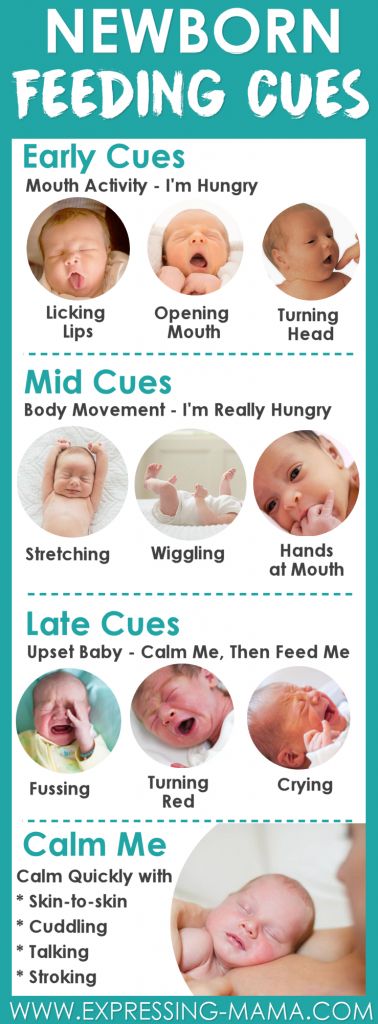 Some other reasons that you might stop breastfeeding include the following:
Some other reasons that you might stop breastfeeding include the following:
-
A business trip or other long absence from home
-
A return to work. Remember, though, you can keep breastfeeding after you go back to work. Talk to your employer about a more flexible schedule. Or ask your healthcare provider or a lactation consultant about how to pump and store your milk.
It’s important to think about your feelings. Some moms want the independence they had before they started breastfeeding. Other moms feel guilty, sad, or lonely when their children no longer want to nurse. They miss the bonding they had with their children while breastfeeding.
To sort through your emotions, talk with a friend who has weaned a child. Or, write your thoughts in a journal. You can share it with your child when he or she is older.
Remember that your child will still need you even after he or she is done breastfeeding.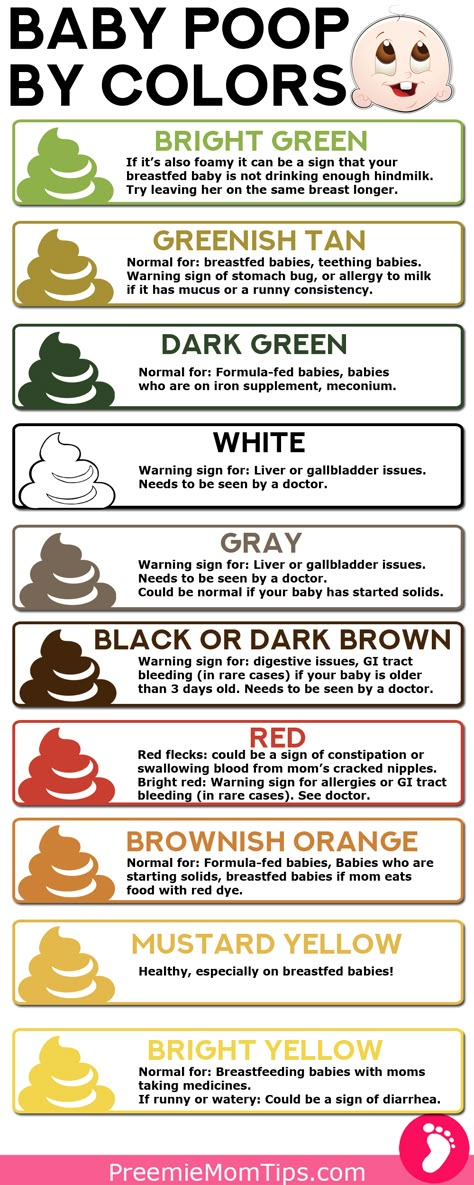 Weaning is the start of a new stage in your special relationship.
Weaning is the start of a new stage in your special relationship.
Changes your body may face
When you stop breastfeeding, your body may change. You may have changes in the following:
-
Breast size and shape. Your breasts will likely get smaller again. However, this may take several months. They may end up a slightly different size or density than they were before you got pregnant. If they feel engorged, or too full, try using your hand or a pump to release a little bit of milk.
-
Fertility. If you’re feeding your baby only breastmilk, your chances of getting pregnant are very low. Breastfeeding can delay the return of normal ovulation and menstrual cycles. But it’s not a guaranteed way to prevent pregnancy. Your chance of getting pregnant goes up when you drop nursing sessions or stop breastfeeding.
Online Medical Reviewer: Bowers, Nancy, RN, BSN, MPHFoley, Maryann, RN, BSN
Date Last Reviewed: 4/12/2016
© 2000-2019 The StayWell Company, LLC.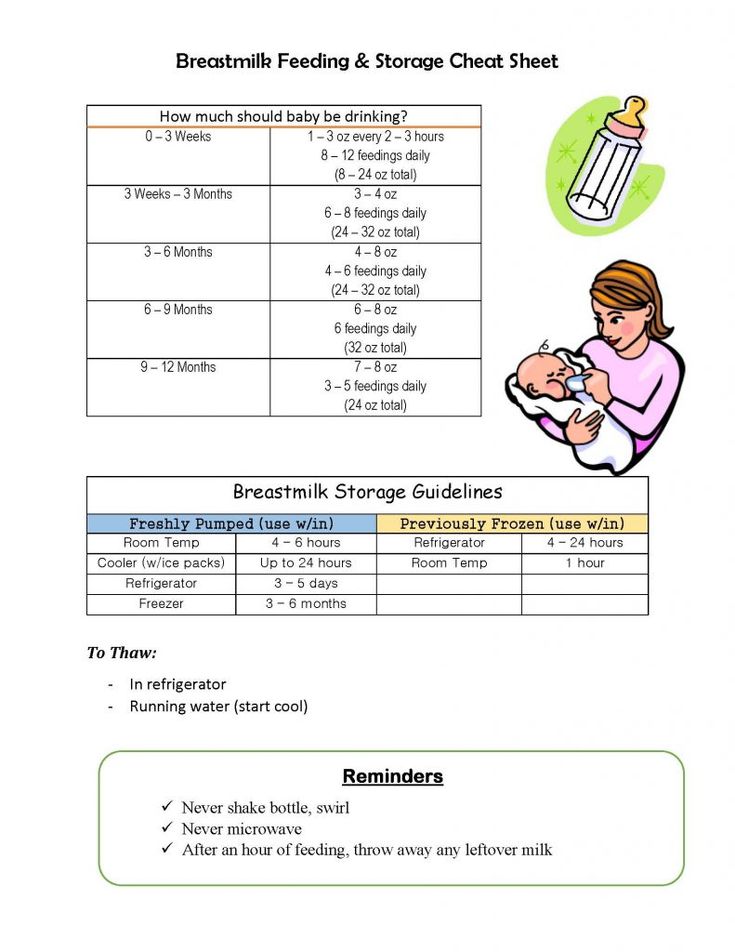 800 Township Line Road, Yardley, PA 19067. All rights reserved. This information is not intended as a substitute for professional medical care. Always follow your healthcare professional's instructions.
800 Township Line Road, Yardley, PA 19067. All rights reserved. This information is not intended as a substitute for professional medical care. Always follow your healthcare professional's instructions.
© 2000-2019 The StayWell Company, LLC. 800 Township Line Road, Yardley, PA 19067. All rights reserved. This information is not intended as a substitute for professional medical care. Always follow your healthcare professional's instructions.
Related Conditions
- Breastfeeding Best Bet Against Baby Allergies
- Breastfeeding May Keep Babies from Inheriting Food Allergies
- Breastfeeding Quiz
- Breastfeeding Your Premature Infant at Home
- High-Risk Newborns and Low Milk Production
- Is Your Baby Getting Enough Milk?
- When Your Baby Has Trouble Latching on or Sucking
- Your Baby’s Nutrition in the First Few Days
Show More
Pediatrician "SM-Doctor" about the age until which a child should be breastfed
Some new mothers try to do this as early as possible.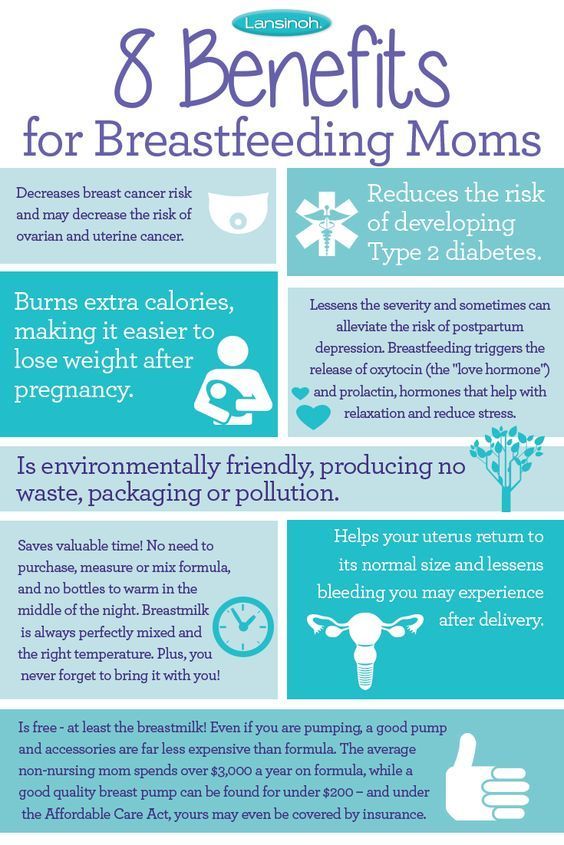 Others continue to put the baby to the breast at 4 and 5 years. Play their role and "national" features. For example, in the UK, only a third of babies in their six months still receive mother's milk, while the rest are transferred to formula. And in the UAE, the law prescribes to breastfeed children up to two years, otherwise you can get severe punishment.
Others continue to put the baby to the breast at 4 and 5 years. Play their role and "national" features. For example, in the UK, only a third of babies in their six months still receive mother's milk, while the rest are transferred to formula. And in the UAE, the law prescribes to breastfeed children up to two years, otherwise you can get severe punishment.
In fact, it is on the figure “two years” that most doctors around the world agree. It is believed that after this age, mother's milk no longer brings additional health benefits. Is it so? we deal with experts.
Tatyana Kuznetsova
TATYANA KUZNETSOVA
pediatrician, nephrologist, breastfeeding consultant at the SM-Doctor clinic.
On the recommendation of the World Health Organization and the UN Children's Fund, it is desirable to maintain breastfeeding up to 2 years, longer - at the mutual desire of the mother and child. Domestic pediatricians, based on practical experience and scientific research, voice the figure up to 1. 5 years.
5 years.
It is now not uncommon to see mothers who breastfeed their children after two years of age. Such prolonged breastfeeding is commonly referred to as long-term feeding.
In any case, after 2.5 years, the child goes through the process of natural extinction of the sucking reflex, there is a gradual self-weaning and, thus, the smooth completion of breastfeeding.
Regardless of the recommendations, the choice always remains with the mother. And the duration of breastfeeding will depend, first of all, on the readiness of both the mother and the child to stop this process.
What are the health risks of early weaning?
Breast milk substitutes do not contain anti-infectious factors, so an artificially fed baby is more likely to get intestinal infections and respiratory diseases. These include frequent acute respiratory viral infections, otitis media, bronchitis, pneumonia, intestinal infections (usually of a viral nature) with prolonged diarrhea, fungal intestinal diseases, as well as a formidable life-threatening condition - necrotizing enterocolitis of newborns.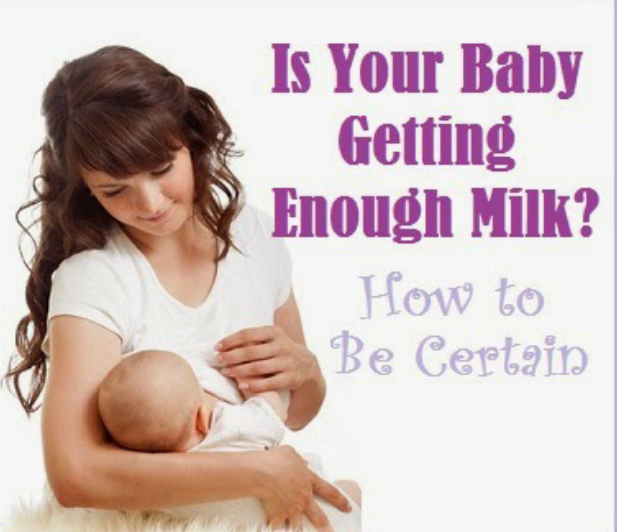
Quite often, infants on mixtures develop intolerance to animal milk proteins (bovine, goat) with the development of allergic reactions, in particular, food allergies in the form of atopic dermatitis. Unfortunately, in the future such children are at risk for the development of allergic bronchitis, bronchial asthma.
Formula feeding increases the risk of developing diabetes mellitus, as well as obesity associated with excessive formula intake that exceeds the needs of the child. Perhaps the development of seizures due to excess content in mixtures of sodium, calcium, phosphorus.
Infants receiving formula may have reduced intellectual development due to a lack of amino acids, omega-fatty acids, which are necessary for the growing brain of a child.
In addition, according to some studies, not breastfeeding increases the risk of sudden infant death syndrome.
And what are the disadvantages of late weaning?
Not only abroad, but also in Russia, there are many studies that have proven the benefits of mother's milk at any time of feeding.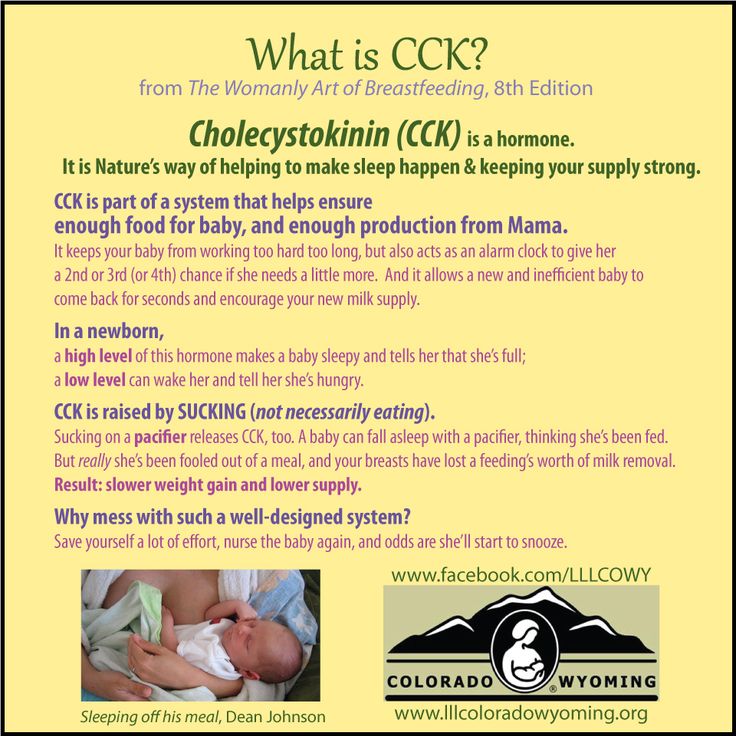 After a year, breast milk changes its composition, but not for the worse.
After a year, breast milk changes its composition, but not for the worse.
The main reason for these changes is that milk is no longer the main food for the baby, and other functions come to the fore.
The older the child becomes, the greater the concentration of immunoglobulins in milk increases, which protect the child from infectious diseases. Breast milk contains leukocytes and a number of anti-infectious factors, as well as antibodies against infectious agents previously transferred by the mother.
How does breastfeeding affect the child's psyche?
Today it is becoming very fashionable to instill early independence in children, and premature weaning is seen by some parents as a means to make the child more independent.
However, psychologists who are closely involved in the study of child development warn that premature weaning can, on the contrary, provoke a delay in emotional development and increase dependence on parents. Imposed independence turns into psychological isolation and abandonment. It is much better to give the child the opportunity to become independent when he is ready for it.
Imposed independence turns into psychological isolation and abandonment. It is much better to give the child the opportunity to become independent when he is ready for it.
This is well illustrated by the results of foreign studies: for example, one of them showed that the greatest achievements in school were in children who were fed longer. And in the course of another, they found that the longer a child breastfeeds, the better social adaptation goes later, at the age of six to eight. Both mothers and teachers acknowledged that babies who were breastfed for a long time were much less likely to develop problem behaviors.
Yes, and Russian doctors, who undertook to study the effect of breastfeeding on the neuropsychic development of children, found that babies who ate their mother's milk for a long time show much better results both at two years, in tests of speech development, and at three years , in tests of the correct performance of skills.
Many long-term breastfeeding mothers successfully combine feeding with work, and also take their children to kindergartens.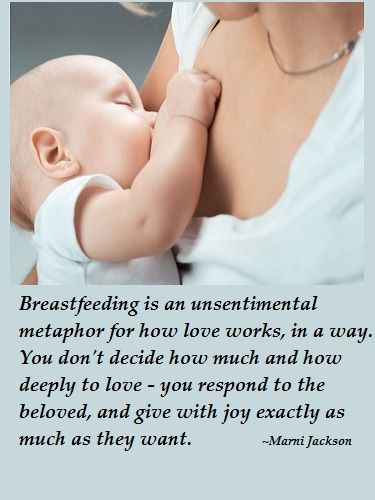 Applications remain only at bedtime and at night. The rest of the time, the baby usually does not need to breastfeed. Ideally, the child should stop asking for breasts during the day, and then at bedtime and at night. As a rule, this happens about 2.5 - 3 years.
Applications remain only at bedtime and at night. The rest of the time, the baby usually does not need to breastfeed. Ideally, the child should stop asking for breasts during the day, and then at bedtime and at night. As a rule, this happens about 2.5 - 3 years.
But if the child continues to breastfeed after 3.5 years, this may indicate some psychological problems of the baby or mother, in this case it is advisable to contact a psychologist, but not an ordinary one, but a friendly one for long-term feeding.
What if I can't breastfeed?
Sergey Butriy
SERGEY BUTRIY
Pediatrician, author of books on child health
A well-known doctor spoke about this in a podcast for Cuprum.
- One of the most "explosive" topics in the pediatrician's office after vaccinations is breastfeeding. Now it's fashionable to be for GW. Of course, formula is not quite the same as breast milk. There is only one "but".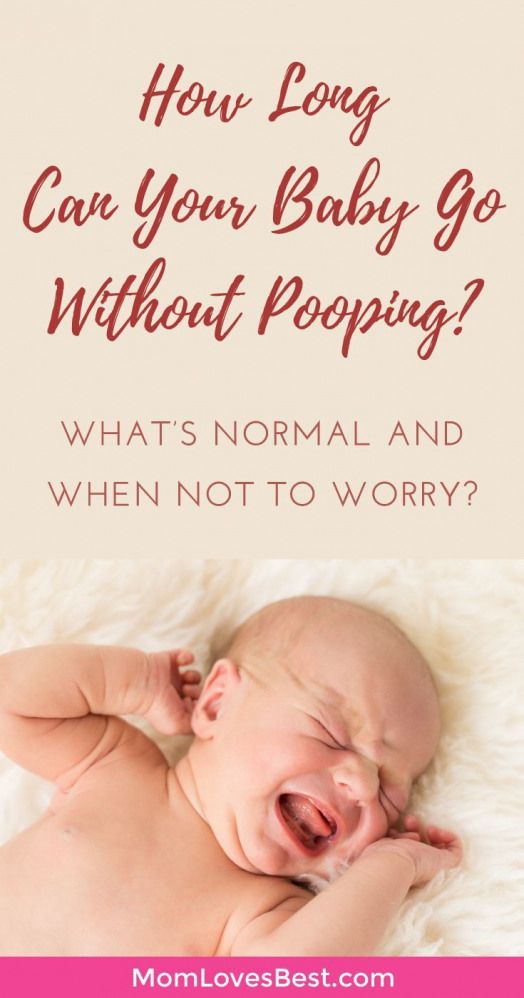
Mothers who failed to breastfeed for health reasons experience a huge sense of guilt. They are pressed by society, other mothers, breastfeeding consultants. Many become depressed because of this, trying to feed through physical pain. But not so perishing GV and it is important. "Die but feed" is not our method. And there are many such mothers, they come to the doctor and cry. It hurts them even to think that they will not give something to the child.
Breastfeeding is great, but it's not the only way. Artificial feeding is not shameful. You can raise a healthy child and mixtures. The main thing is that mom is calm.
Published on parents.ru
Until what age is it recommended to breastfeed?
How long can I breastfeed?
Currently, the World Health Organization (WHO) and UNICEF* place great emphasis on continued breastfeeding in children older than one year, recommending that this process be continued up to two years of age or beyond. After 2.5 years, the child goes through the process of natural extinction of the sucking reflex. Gradually, he nullifies all feedings, simply ceasing to need the sucking process as such.
After 2.5 years, the child goes through the process of natural extinction of the sucking reflex. Gradually, he nullifies all feedings, simply ceasing to need the sucking process as such.
WHO is known to recommend breastfeeding up to 2 years of age and beyond if the mother wishes. Domestic pediatricians, based on practical experience and scientific research, voice the figure - up to 1.5 years. In any case, the choice remains with the mother and will depend primarily on the readiness of both the mother and the child to stop this process. It is not recommended to stop breastfeeding during the illness of the child, during the period of his vaccination, during other stressful conditions, as well as in the summer season. It is possible to successfully save HB even after a year, but under a number of conditions.
Is it good to breastfeed after a year?
After a year, breast milk changes its composition, but not for the worse. The main reason for these changes is that milk is no longer the main food for the baby, and other functions come to the fore.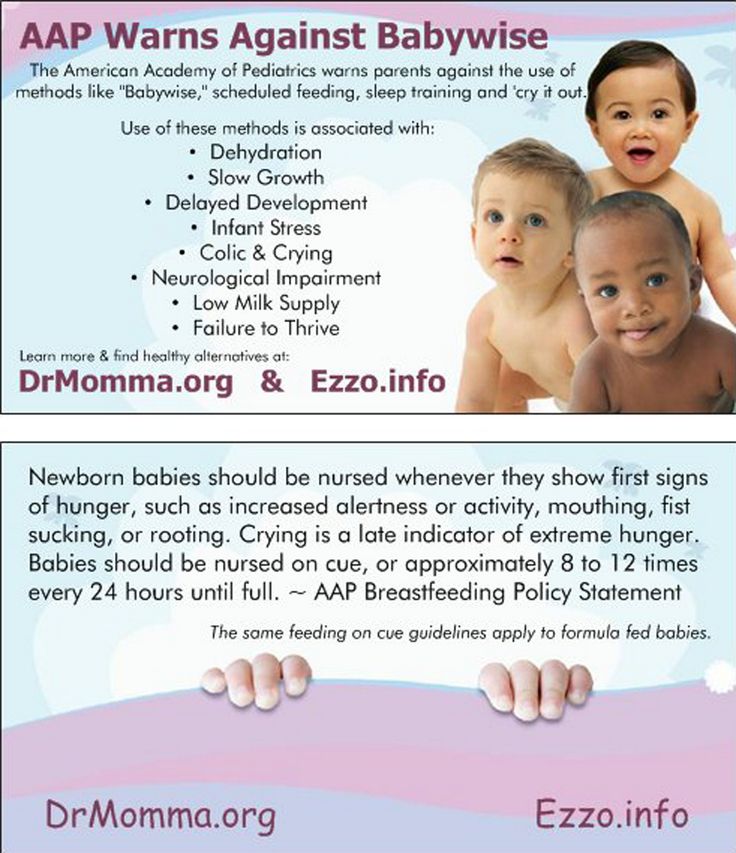 The older the child becomes, the more the concentration of immunoglobulins in milk increases, which protect the child from diseases. Studies have shown that in the second year of lactation, the content of total protein in milk increases, as well as such an important protein as lactoferrin. Breast milk contains leukocytes and a number of anti-infectious factors, as well as antibodies against infectious agents previously transferred by the mother.
The older the child becomes, the more the concentration of immunoglobulins in milk increases, which protect the child from diseases. Studies have shown that in the second year of lactation, the content of total protein in milk increases, as well as such an important protein as lactoferrin. Breast milk contains leukocytes and a number of anti-infectious factors, as well as antibodies against infectious agents previously transferred by the mother.
- Breastfeeding after a year should not "interfere" with the organization of rational nutrition of the child, providing for the introduction of basic products, dishes, the formation of a diet and a certain ritual of eating. GW during this period should not be a "snack". The child must learn in a timely manner to eat from a spoon, chew, observe certain rules of behavior at the table.
- Breastfeeding after one year should not "hinder" the child from growing up. Such child's emotions as resentment, pain, boredom, irritation, anger, feeling of loneliness, selfishness should not be “jammed” with breast milk.
